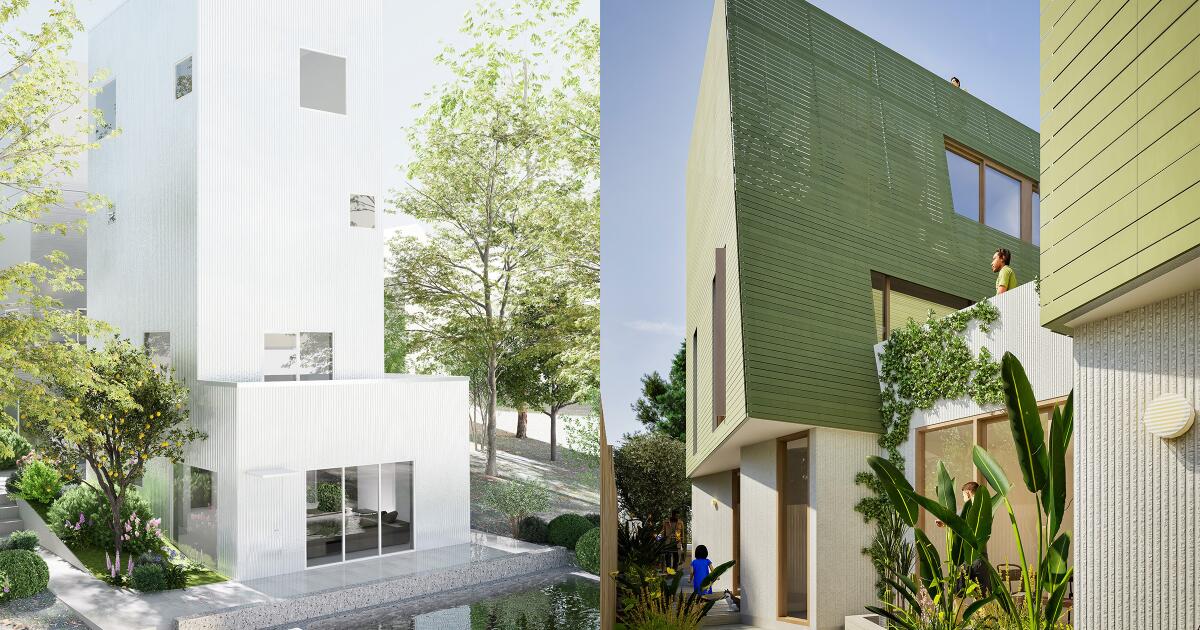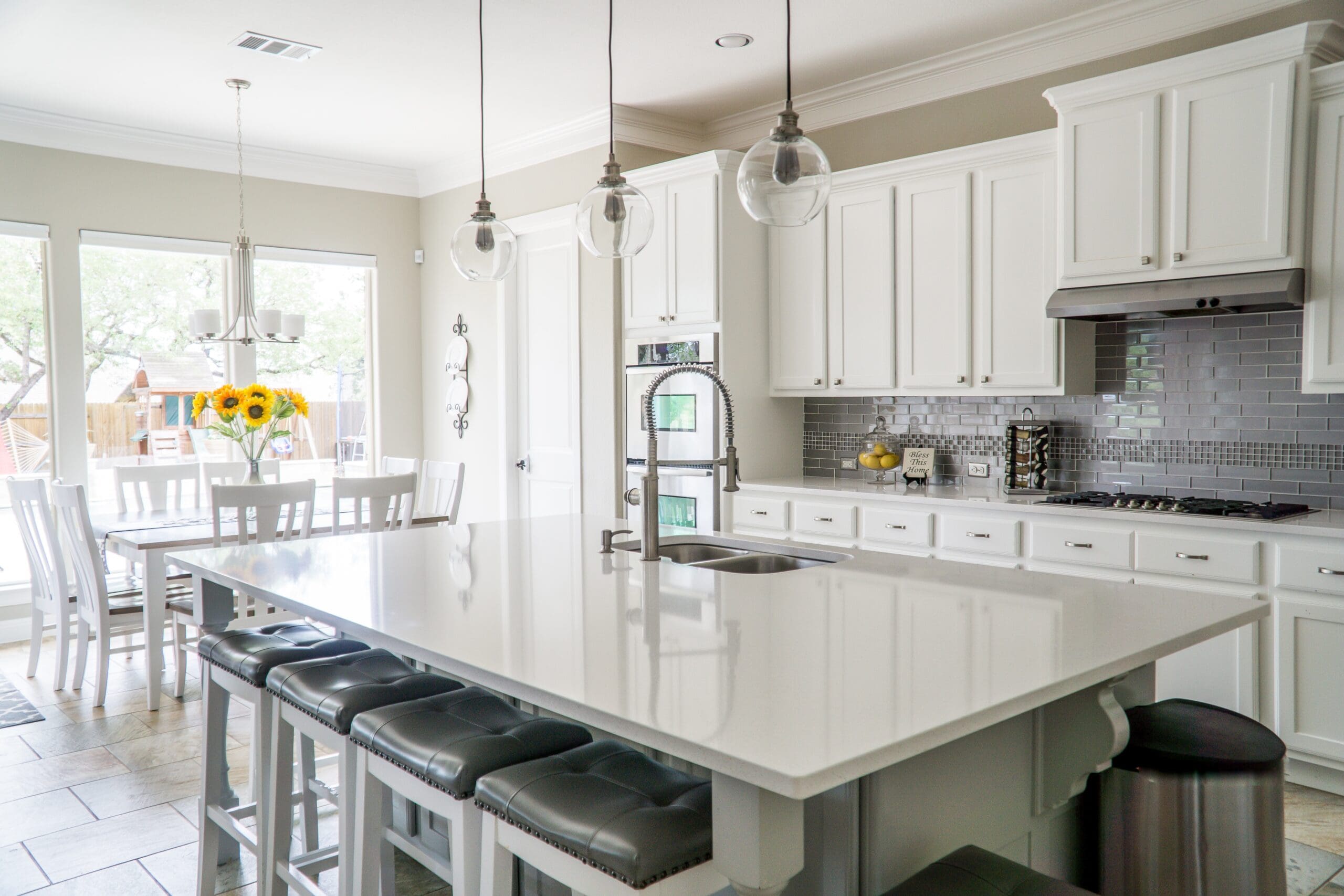Why Aussies refuse to downsize for city
Australians are clinging to their laundries, spare rooms and car spots — even if it means ditching city life — in a defiant rejection of the downsizing dream.
New research from Compare the Market reveals just 18.8 per cent of Australians would sacrifice space to live closer to the CBD, while a staggering 71.3 per cent either won’t downsize or have no desire to live in the city at all.
But while most of the nation is holding onto space, property experts say buyers are increasingly flipping the script.
RELATED: Overlooked VIC suburbs winning in 2025
‘Major lift’: Shock Aus city tops price boom
‘Crippling’: Tradies in turmoil over meltdown
Compare the Market’s general manager of money Stephen Zeller said Australians were drawing clear lines around which home features they would and wouldn’t compromise on — and it wasn’t what you might expect.
“Knowing which home amenities you definitely want and which you’re willing to compromise on can help you narrow down which properties are right for you,” Mr Zeller said.
“Using comparison tools can also help you find a competitive interest rate on offer.”
Sydneysiders were more open to downsizing than the national average, but still showed strong resistance to losing essential home features. Picture: NewsWire / John Appleyard
Laundries topped the list of non-negotiables, with 50 per cent of Australians saying they would not give them up — followed by car park spaces, 38.9 per cent, garages, 34.7 per cent, and spare rooms, 30 per cent.
Buyers were most willing to ditch pools, 57.9 per cent, garden sheds, 42.1 per cent, and backyards, 35.8 per cent, to get closer to the city.
Melbourne based buyers advocate Cate Bakos said the national data came as a surprise, because her clients are increasingly choosing location over space.
“That actually surprised me — because I’m seeing the opposite,” Ms Bakos said.
“People are much more willing to give up space to be close to cafes, culture and lifestyle.
“They want to be where the action is.”
Just 18.8 per cent of Australians would downsize for city living, but Melbourne and Brisbane buyers are bucking the national trend.
Melbourne buyers are giving up garages and backyards to live closer to the action and demand is surging in inner suburbs. Photo: iStock
Ms Bakos said many buyers had moved away from car ownership entirely, opting for public transport, ride-share services and car share schemes.
“They’d rather save that cost and use the money elsewhere,” she said.
“The focus has shifted to experiences, lifestyle and social connectivity.”
But the buyers agent said one feature remains a deal-breaker for many buyers:
“Move-in readiness. Buyers are not interested in renovators right now,” Ms Bakos said.
“The builder shortage and renovation costs have turned people off.
“A turnkey home is gold.”
Ms Bakos added that confidence was being driven by major infrastructure upgrades, particularly Melbourne’s $15bn Metro Tunnel, set to reshape commuting when it opens later this year.
“It’s the kind of change buyers will feel in their daily commute,” she said.
“It builds confidence and convenience.”
“The Suburban Rail Loop might be the long game, but right now, the Metro Tunnel is what people are excited about.”
Experts say the Suburban Rail Loop may reshape Melbourne long-term, but buyers are focused on faster wins closer to the CBD.
The Metro Tunnel is set to transform Melbourne’s inner-city commute and buyers are already anticipating the benefits. Picture: David Geraghty
McGrath Wynnum-Manly’s Gaby McEwan says post-Covid lifestyle shifts are driving families back to the coast, and they’re not looking back.
McGrath Wynnum-Manly principal Gaby McEwan said buyers, particularly in Brisbane were still chasing space, but not for land size alone.
“It’s not necessarily about acreage. It’s about a change in pace,” Ms McEwan said.
“They want a backyard, a garden, a safer community and access to the water.”
Ms McEwan said a growing number of young families were selling up in Brisbane inner-city pockets like Newstead and West End to secure lifestyle homes in seaside suburbs such as Wynnum and Manly.
“They’re not just trading sideways,” she said.
“In some cases, they’re paying more for a smaller block, just to live near the water.
“The Esplanade used to be quiet. Now it’s buzzing. People discovered it during lockdowns and never left.”
Manly Harbour’s bayside lifestyle is luring buyers from Brisbane’s inner suburbs, many paying a premium for space, schools and sea breezes. Picture David Clark
The McGrath Wynnum-Manly principal said even basic homes are being snapped up by buyers keen to get into the suburb.
“We recently sold one for $925,000, it was full of asbestos and hadn’t been touched in decades,” Ms McEwan said.
“But it was on a great street, and the buyers were happy to renovate just to get in.”
Ms McEwan said a wave of locals who grew up in the area were now returning after years of inner-city living.
“They’ve seen the value of their units go up, and now they’re either selling or holding and buying again here,” she said.
“It’s a smart move, and once they’re back, they never want to leave.”
State-by-state: Who’s least willing to compromise?
Victorians were the most attached to their laundries, with 53.2 per cent unwilling to give them up.
Queenslanders were more open to ditching the backyard, 38.5 per cent, and only 10.9 per cent were willing to lose a laundry.
New South Wales came in close to the national average, but Sydneysiders showed slightly greater willingness to downsize for location.
South Australians were most attached to having a garage, with 42.9 per cent unwilling to let it go.
Sign up to the Herald Sun Weekly Real Estate Update. Click here to get the latest Victorian property market news delivered direct to your inbox.
MORE: Block star reveals mistake that devalue homes
‘Major lift’: Shock Aus city tops price boom
These Aussies may never be able to buy a home
david.bonaddio@news.com.au



















 English (US) ·
English (US) ·